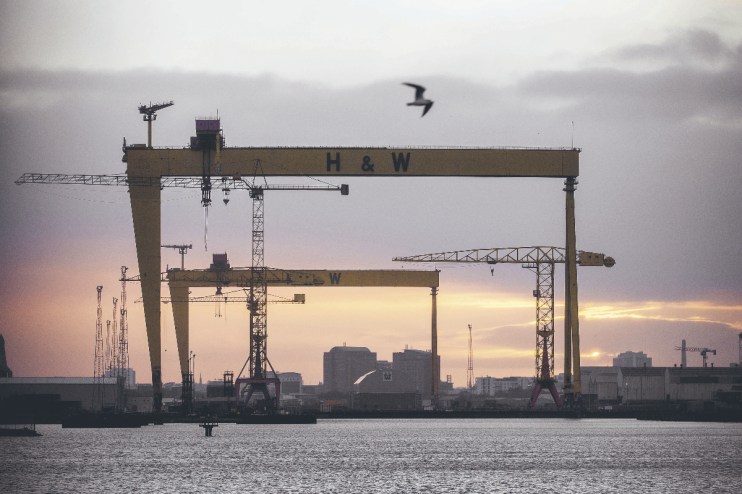Harland & Wolff: Propping up Titanic shipbuilder posed ‘substantial risk taxpayer cash would be lost’

Propping up Harland & Wolff presented a “very substantial risk that taxpayer money would be lost,” the government has said.
The Belfast shipyard, which built the Titanic, is facing collapse after the new Labour government refused to guarantee a critical £200m loan from UKEF on Friday.
The deal would have allowed the firm to borrow money from a number of banks, but the government would have been responsible for repaying lenders had the loan gone bad.
In a written statement, Business Secretary Jonathan Reynolds said: “This decision was based on a comprehensive assessment of the company’s financial profile and the criteria set out in our risk policies.
“We have also decided not to provide any form of emergency liquidity funding. The government believes, in this instance, that the market is best placed to resolve the commercial matters faced by Harland & Wolff”
Chief executive John Wood quit as the news broke last week and Harland is now in last ditch talks with its Wall Street Lender Riverstone Credit Partners over an emergency £20m facility needed to stave off bankruptcy.
Management are confident they can strike a deal with Riverstone in the coming days, but that would still leave the long-term future of the business uncertain.
Reynolds said: “I welcome potential new financing for Harland and Wolff and the appointment of new management and wish them all the best in their continued efforts to build up this business.”
The decision over whether to prop up the embattled shipyard represented one of the first major tests of the new government’s industrial strategy.
The Conservatives were split on whether to provide the guarantee, with former Chancellor Jeremy Hunt reportedly against.
Over 1,000 jobs are at risk across Harland’s sites in the UK.
Matt Roberts, National Officer for the GMB Union, said: “These are worrying times for workers and their families in Northern Ireland, Scotland and the South West.
“These yards have been at the heart of UK manufacturing for centuries – from building the Titanic to the ships that defeated the Armada. Now they are critical to our future security in building the Fleet Solid Support ships for our navy and in providing the renewables infrastructure needed to reach net zero.”
It comes against a backdrop of industrial challenges for Keir Starmer and his front bench.
In Wales, Tata Steel is set to lay off up to 2,800 workers as it moves to greener steel production at Port Talbot. Questions are also growing around the future of the Belfast factory’s of Spirit following its takeover by Boeing.
Shares in AIM-listed Harland have been suspended from the London Stock Exchange since 1 July, after accounting issues delayed publication of its audited annual accounts. Its unaudited accounts revealed an operating loss of £24.7m.